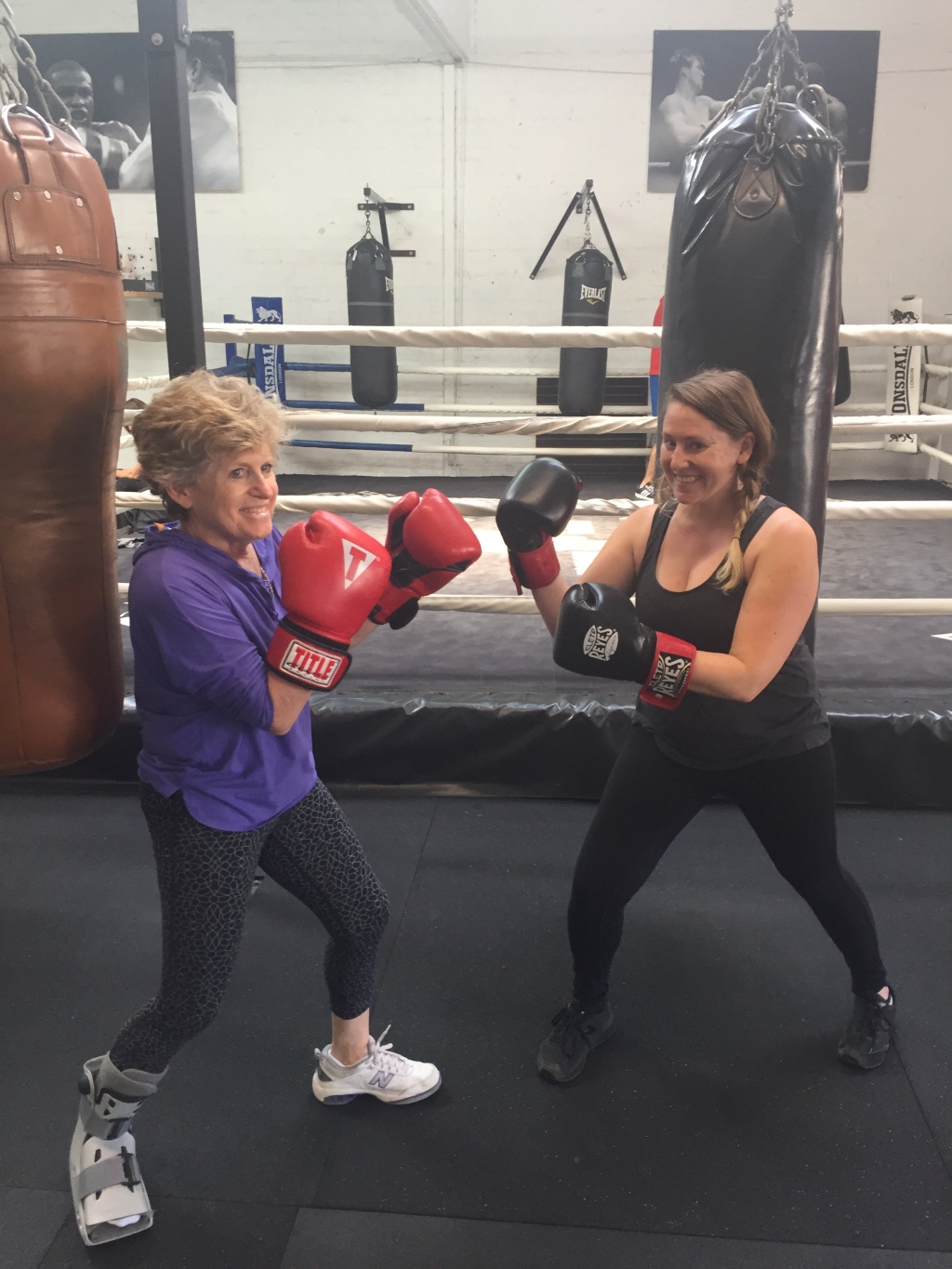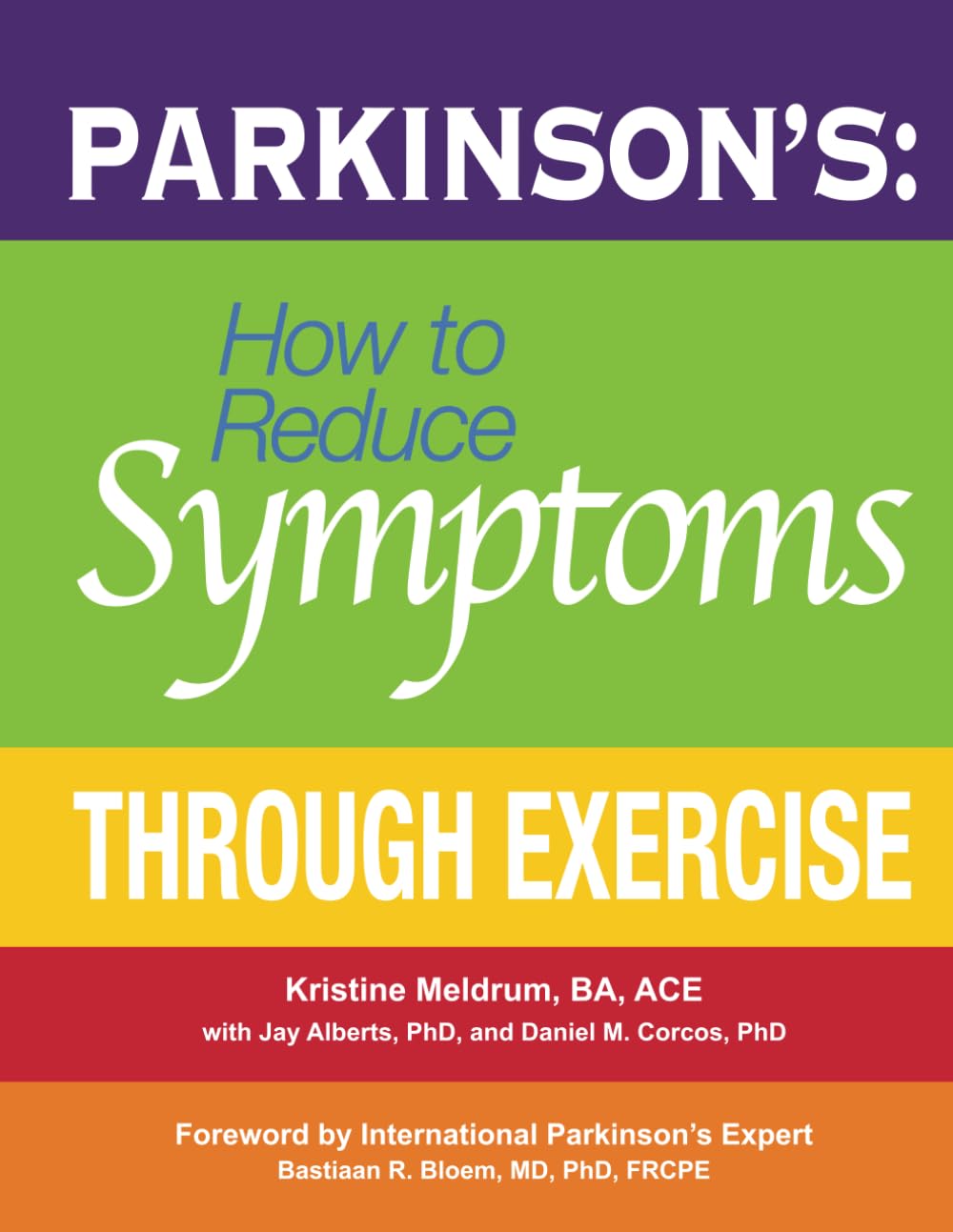If you have been following Twitchy Woman for the last few years, you have seen numerous updates on “Women and PD TALK”, the project that I co-chaired for the Parkinson’s Foundation that looked at the unmet needs of women with PD. Last Friday, the Patient-Centered Outcomes Research Institute (PCORI), which gave a grant to the Parkinsons Foundation for the study, published a story about our work on its home page. I am sharing it with you here today.
A special thank you to Melissa Schenkman, who wrote the article.
Improving Life for Women with Parkinson’s Disease
PCORI Engagement Award supports the creation of a national, prioritized women and Parkinson’s research and care agenda.
By Melissa Schenkman, MPH, MSJ Writer and Editor PCORI
November 2019
As an audiologist, Sharon Krischer used her skills to help others improve their hearing. But for a long time, she couldn’t hear what her own body was telling her.
The mother of three daughters and grandmother of four remembers writing thank you notes one day when her right foot started shaking. It continued happening occasionally, but the inconsistency made Krischer think nothing of it until she broke her opposite leg and the twitch in her right foot returned. This time it wasn’t going away.
Krischer’s internist prescribed anti-anxiety medication, but the tremor spread to her right hand. She saw a neurologist who said she had a Parkinson’s-like tremor and prescribed an anti-Parkinson drug.

After experiencing hallucinations from the medication, her internist referred her to a movement disorders specialist at University of California, Los Angeles. There, 18 months after first seeing symptoms, she received a diagnosis of Parkinson’s disease (PD). She was 57 years old.
“The first year is very, very hard if you are a young woman with PD because you don’t know how people will react,” Krischer said. “It’s also hard to go from being the caregiver to receiving care, especially if you have children.”
Her search for information on PD in women drove her to become the lead patient partner on a Eugene Washington PCORI Engagement Award, supporting a project to improve the lives of women with PD through research and care.
A Different Experience
Krischer is one of nearly one million Americans who by 2020 will be living with PD. It’s a number that is greater than the number of people diagnosed with multiple sclerosis, Lou Gehrig’s disease, and muscular dystrophy, combined.
PD is a neurodegenerative disorder that breaks down neurons, cells that are the building blocks of our central nervous system, the body’s own electrical grid. It mainly affects nerves producing the neurotransmitter dopamine, a substance allowing the electrical transfer of messages from one nerve cell to another or from a nerve cell to a muscle.
People can experience both motor and non-motor symptoms. Motor symptoms can include resting tremor. However, non-motor symptoms include less visible ones, such as depression.
While the cause of PD is unknown, researchers have found that men are 1.5 time’s more likely to have PD than women.
Several women went to a support group only once and never went back because it was almost all men. The only women there were the wives. They’d look at them and say, ‘Where’s your husband? Isn’t he the one with Parkinson’s?
Sharon Krischer
Lead Patient Partner, Co-lead, Los Angeles, CA, forum
Women’s experiences with PD differ from men. They can face longer times between symptom onset and diagnosis, and between symptom appearance and visiting a movement disorders specialist, according to a small study conducted at Beth Israel Medical Center. Women may experience more non-motor symptoms and are more likely to be single or widowed, while men are more likely to rely on a spouse as their primary caregiver.
“A lot of people measure health through mortality. If that is the outcome you’re looking at, of course, men have poorer health outcomes if women live longer,” said Megan Feeney, MPH, senior manager, community engagement at the Parkinson’s Foundation, who helped spearhead their PCORI-funded project. “But when you look at other health issues women with Parkinson’s develop in conjunction with not having a support structure, the quality of life challenges they face are huge.”
The project created a three-pronged agenda specifically for women with PD. The agenda focuses on:
- Increasing and improving research (basic, translational, and clinical) to better understand PD in women
- Improving healthcare access and delivery for women with PD
- Empowering women with PD and their care teams to advocate for optimal Parkinson’s care focused on women’s unique experiences
Maximizing Quality of Life
The decision to shine a light on women living with PD came from informal conversations in 2014 with women noting the lack of information, resources, and connections available to them.

(Photo courtesy of Parkinson’s Foundation)
Women living with Parkinson’s disease lead a panel session at the National Forum in Houston, Texas, in October 2018.
Answering the call to action, Veronica Todaro, MPH, Feeney, and others launched a Women and PD Initiative, focusing on education and information. They organized a conference in 2015, selecting 25 women to attend.
Krischer was one. There, she learned about the limited information on women and PD, including knowledge on mental health and intimacy.
Attendees applied the knowledge, engaging their communities. For example, Krischer started a support group for women with PD, hosting activities including boxing classes and even a sex therapist’s talk.
“We now had the educational and community pieces, but still needed to understand where the gaps in patient-reported outcomes were,” said Todaro, executive vice president and chief operating officer, Parkinson’s Foundation.
It sparked her idea for leading a PCORI-funded project to create a national, prioritized Women and Parkinson’s research and care agenda. She collaborated with a national team, including women with PD, and representatives from medical universities and Parkinson’s organizations who assisted in creating materials and ensuring activities aligned with community needs.
The project, Women and PD Teams to Advance Learning and Knowledge (TALK), “allowed for a structured way to bring the voices of women with Parkinson’s into discussions around better outcomes related to decision making with providers and researchers to maximize women’s quality of life,” Todaro said.

In all, 242 women with PD and 178 stakeholders—caregivers, family members, health professionals, government representatives, and others working directly with PD patients—attended 10 forums around the country.
Empowering the Patient Voice
Women with PD discussed their experiences in relation to risk, symptoms, treatment, and care.
Krischer co-led the Los Angeles forum, where discussions included the difficulty of diagnosis, insomnia, and dismissiveness of some doctors because of PD’s association with men.
Another interesting issue was women’s experiences with seeking support.
“Several women went to a support group only once and never went back because it was almost all men. The only women there were the wives,” Krischer said. “They’d look at them and say, ‘Where’s your husband? Isn’t he the one with Parkinson’s?’”
Experiences like this were the norm in Sioux Falls, South Dakota, where Mary Tidwell lives. She started a support group for women after her 10-month journey to receiving her PD diagnosis. She believes it’s the only group specifically for women in the state.
Not surprising given that until August 2018, there was only one movement disorders specialist in South Dakota—located 350 miles from Tidwell.
There’s a real hunger for opportunities to connect with other people that have the disease, to learn from each other, and to support each other.
Mary Tidwell
Patient Partner, Women and PD TALK, Co-lead,
Sioux Falls, SD, forum
Women in rural areas face even greater challenges. For some, access to care means community health centers without neurologists and having the closest neurologist hundreds of miles away. Distance combined with the farming work cycle and the state’s harsh weather can limit opportunities to see a neurologist.
“It can be a very lonely disease,” Tidwell said. “There’s a real hunger for opportunities to connect with other people that have the disease, to learn from each other, and to support each other.”
The importance of establishing connections and having patients lead the way resonated with project stakeholder Ruth Schneider, MD, a movement disorders specialist at the University of Rochester’s Parkinson’s Foundation Center of Excellence.
“In my practice, I’ve found that women are more likely to internalize the disease, so PD becomes a part of their identity rather than a medical illness,” said the Rochester forum’s co-leader. “We are increasingly recognizing gender disparities in PD and our approach to addressing them has to be driven by our patients if we will make meaningful change.”
Making a Lasting Impression
Patients, researchers, and others disseminated the agenda through multiple efforts.
Yvonne Hylton, a woman with PD, Allison Willis, MD, a project co-lead, Feeney, and clinician stakeholders presented the agenda at the 2019 Parkinson’s Foundation Center Leadership Conference—an audience of leading researchers and clinicians from the foundation’s Centers for Excellence around the world.
The project is also affecting medical studies. Researchers reanalyzed data in the Parkinson’s Outcomes Project database, examining sex in relation to neuropsychological referral and adherence, comparing models of care within the foundation’s Centers of Excellence. They presented the results at the Movement Disorders Society annual meeting.

Finally, several breakout sessions helped inform the Newly Diagnosed campaign, which aims to close the information gap so people can better manage their PD from the start.
While efforts to integrate and disseminate the agenda into future research continue, the patient presence remains constant, including their role in a second PCORI Engagement Award. The award will support the foundation in creating a nationwide standardized model of patient advisory boards for implementing patient engagement at medical institutions and furthering Parkinson’s patient-centered comparative effectiveness research.
“I think that scientists have an idea of what they are looking for, but I think you get a better perspective of what’s really happening by including the patient voice in the process,” Krischer said. “We are the ones going through this and what you think we need may not be what we think we need.”











Leave a comment